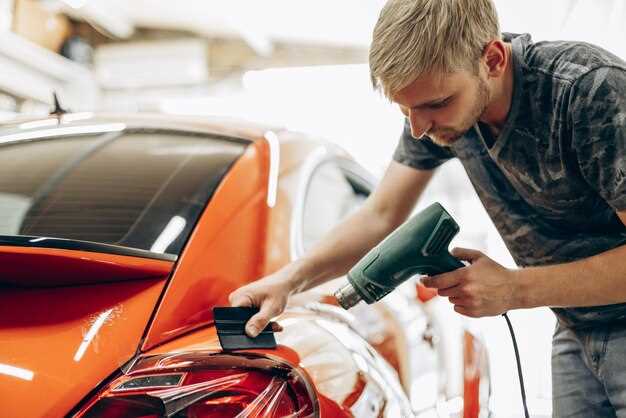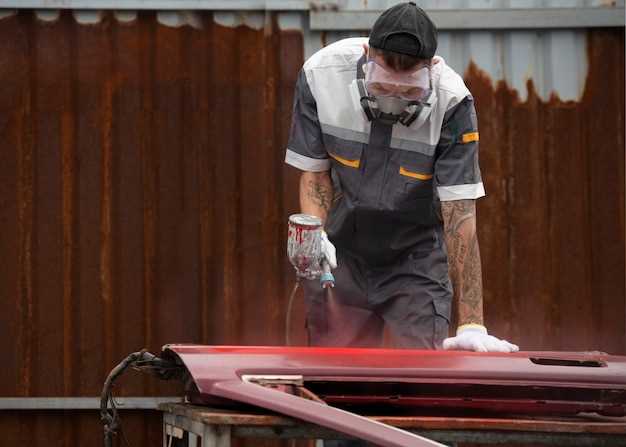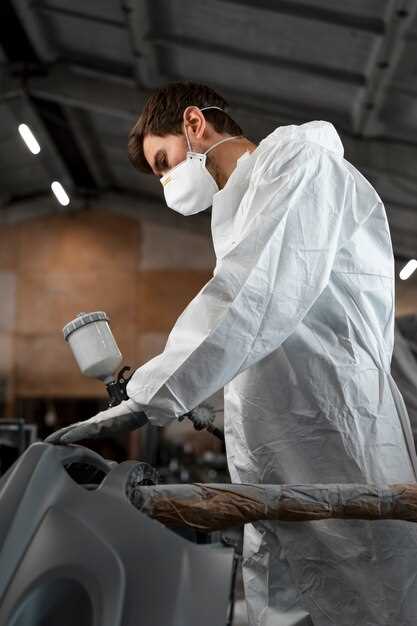
When it comes to painting your kit car, one of the first decisions you’ll face is whether to tackle the project yourself or to hire a professional. Each option comes with its own set of advantages and challenges that can significantly impact the quality of the finish and the overall enjoyment of the process. Understanding these factors is essential for making an informed choice that aligns with your skills, budget, and aesthetic goals.
DIY painting offers the allure of personal involvement, allowing you to customize every detail to your liking. It can also be a cost-effective solution, especially for those who enjoy hands-on projects and have some prior experience. However, achieving a showroom-quality finish requires not only the right tools and materials but also a commitment to learning proper techniques. Without adequate preparation and skill, you may end up with an uneven coat and wasted materials, ultimately costing you more in terms of time and resources.
On the other hand, hiring professionals ensures access to expertise and advanced equipment that can produce a flawless finish. Professional painters understand the nuances of paint types, application methods, and environmental factors that influence the outcome. This option saves time and often yields superior results, but it comes at a higher cost. Weighing the financial investment against the potential benefits can help clarify whether this path aligns with your vision for your kit car.
Ultimately, the choice between DIY and professionals hinges on a combination of personal preference, budget constraints, and desired outcomes. By carefully considering these elements, you can make a decision that not only enhances your kit car but also ensures satisfaction with the final product.
Assessing Your Skill Level and Tools for DIY Kit Car Painting

Before embarking on a DIY kit car painting project, it is crucial to evaluate your skill level and the tools you possess. This self-assessment will help determine whether you can achieve a professional-looking finish or if it’s better to hire a specialist.
Start by reflecting on your experience with automotive painting and bodywork. Have you previously painted vehicles or completed similar projects? If so, how satisfied were you with the outcomes? Skill in this area is often built through practice, so if you have a strong foundation, you may be well-equipped for the task. Lack of experience, however, may lead to a less desirable finish.
Next, consider the tools at your disposal. A successful DIY paint job requires more than just paint; it involves a range of equipment such as spray guns, compressors, sanding tools, and safety gear. Evaluate whether you have access to high-quality tools, which can significantly influence the final result. Investing in the right equipment will not only enhance your efficiency but also improve the overall appearance of the paintwork.
Safety measures should also be a priority. Ensure you have suitable protective gear including masks, gloves, and goggles. Proper ventilation is essential during painting to avoid exposure to harmful fumes. If your workspace is not equipped for safe painting, this may affect your decision to proceed with DIY.
Additionally, consider the complexity of the paint job you are planning. Simple color changes may be manageable for beginners, while intricate designs or multi-stage paint processes may require professional expertise. Understanding the level of difficulty will assist in making an informed choice.
Ultimately, a combination of honest self-assessment regarding your skills, the quality of your tools, and the scope of the project will guide your decision-making process. If doubts remain about your capabilities, consulting with professionals might yield the best results for your kit car painting endeavor.
Understanding Costs and Time Commitment for Professional Painting Services
When considering professional painting services for your kit car, it is crucial to understand the associated costs and time commitment involved. Professional painters typically charge based on various factors, including materials used, labor costs, and the complexity of the job. On average, the total expenses can range from $1,500 to $5,000, depending on these elements.
Labor Costs
Labor is one of the most significant portions of the overall expense. Professional painters may charge an hourly rate, which can vary widely depending on their expertise and location. In metropolitan areas, rates may reach as high as $100 per hour. Moreover, intricate designs or custom paint jobs can require more skilled labor, further increasing costs.
Materials and Equipment
The quality of paint and additional materials like primers, sealers, and clear coats directly impact the final price. High-end automotive paint can cost between $200 to $800 per gallon, and additional supplies may add another $200 to $500 to your budget. Professional-grade equipment, such as spray guns and booths, also factors into the cost.
Time Commitment
Time is another vital consideration. A professional paint job typically takes longer than DIY methods, with most projects spanning from several days to a couple of weeks. This timeframe includes preparation, painting, and curing processes. Professionals often allocate time for sanding, fixing imperfections, and applying multiple coats, ensuring a high-quality finish.
Future Considerations
Investing in professional painting services can lead to long-term savings by enhancing your vehicle’s value and reducing the likelihood of future repainting. High-quality finishes tend to last longer and withstand environmental factors better than amateur jobs. Always assess the potential return on investment when weighing the costs against your vehicle’s long-term condition.
In summary, understanding the costs and time involved in professional painting services for your kit car is essential for making an informed decision. Weighing these factors against the DIY approach will ultimately help you determine the best course of action for achieving the desired aesthetic and longevity for your vehicle.
Evaluating the Quality and Longevity of DIY vs. Professional Paint Jobs

When considering whether to undertake a DIY paint job or hire professionals for your kit car, evaluating the quality and longevity of the results is crucial. DIY paint jobs can be appealing due to lower costs and the satisfaction of doing it yourself. However, the quality often depends on the painter’s skill level, equipment, and materials used. Without proper preparation, techniques, and high-quality paint, DIY jobs may display issues such as uneven coverage, peeling, or fading over time.
On the other hand, professional paint jobs typically guarantee higher quality due to the use of advanced tools and materials. Professionals possess experience and knowledge about different paint types, application methods, and environmental factors that can affect the outcome. This expertise often translates into a smoother finish, better adhesion, and a longer-lasting appearance. Additionally, many professionals offer warranties on their work, providing peace of mind regarding the longevity of the paint job.
The longevity of a paint job also hinges on the environmental conditions in which the vehicle is kept. A well-executed professional paint job may resist the effects of UV rays, humidity, and other environmental factors better than a DIY job, particularly if the latter does not utilize high-quality clear coats or sealants. In essence, while DIY projects can be rewarding, they often fall short in durability and finish quality when compared to professional results, which emphasize both aesthetic appeal and longevity.













